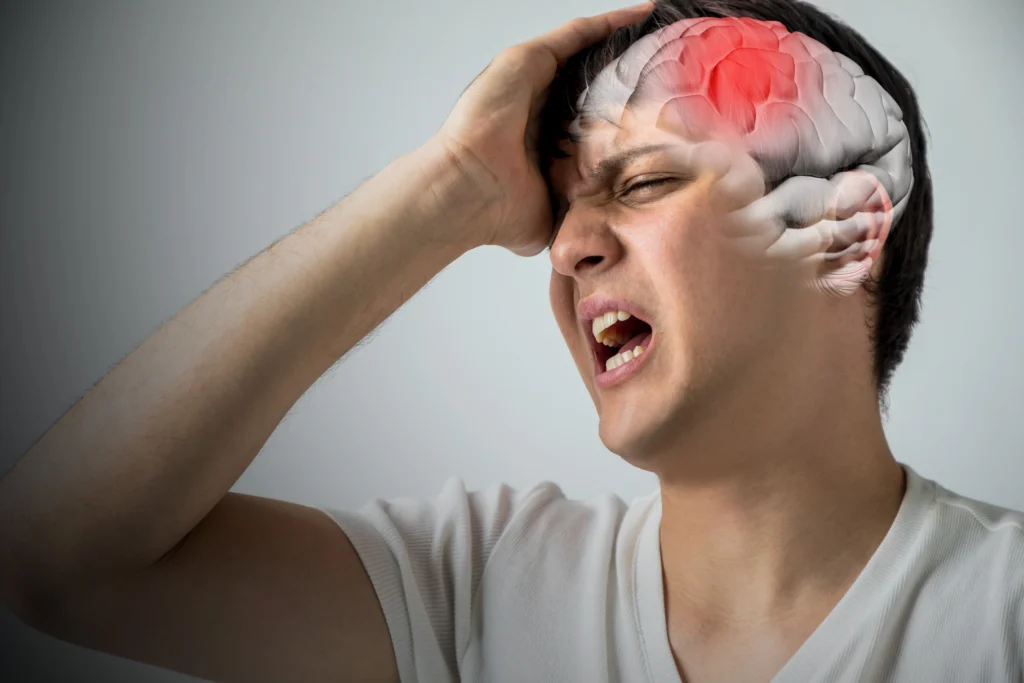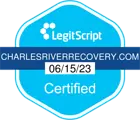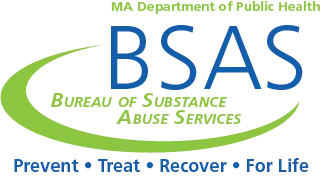Drug and Alcohol Withdrawal
Substance use disorder, or SUD, can lead to a stroke. Interestingly, only alcohol generally causes stroke during withdrawal. It is also true that other drugs that could cause stroke from use, such as cocaine, heroin, and meth, might cause strokes in a client in detox because of residual material still in the client’s bloodstream.
Withdrawal From Different Drugs and the Effect on Stroke
As per the previous citation, alcohol is the only recreational drug that causes stroke during withdrawal. Most of the time, alcohol withdrawal includes mild symptoms that have little or no chance of leading to a stroke. Severe symptoms include heavy vomiting, confusion, aphasia, and shortness of breath. Still, the risk of stroke isn’t usually high unless you experience the condition called delirium tremens, which is also known as “the DTs.”
The DTs can cause drastic changes in blood pressure, which is what causes strokes. Untreated, the DTs have amortality rate of up to 37%. With quick and correct treatment, the mortality rate is just 5%.
The Cleveland Clinic states that stroke is not among the symptoms of cocaine withdrawal. The use of cocaine is, however, detrimental to the heart and circulatory system. Overdoses are the most dangerous, and it’s possible to overdose on cocaine the very first time you use it. The effect can cause arrhythmia and also a lethal kind of tachycardia called torsades de pointe. Torsades de pointe can cause not only sudden cardiac death but also strokes. So, if a person is withdrawing from cocaine, the arrhythmia and/or torsades de pointe can wind up being fatal by cardiac arrest or stroke even if it’s not the withdrawal itself that caused it.
Meth use produces similar dangers, and researchers Finsterer and Stöllberger reported in their 2016 study that strokes are common among heroin users. Their collection of data shows that it generally happens within an hour after the person takes heroin.
The Effect of High Blood Pressure
The kind of stroke that people in withdrawal experience is hemorrhagic stroke and not ischemic stroke. The spike in blood pressure causes a blood vessel in the brain to burst. When it comes to survival rates, just 60% of people who have hemorrhagic strokes live one month past their strokes. Just 46% survive longer than one year. Further, heavy use causes a higher mortality rate than either light use or moderate use. People with severe substance use disorder typically have high blood pressure, which is what leads to a stroke. Also, per the previous citation from the National Library of Medicine, a combination of substance use disorders and alcohol withdrawal can complicate the recovery process.
Medically Assisted Detox
In most cases, mild alcohol withdrawal, colloquially known as a hangover, is unpleasant but not overly dangerous. It shouldn’t require medical supervision. The withdrawal from heavy drinking, whether or not the DTs are involved, will nearly always require medical supervision.
The detox process from other substances is similar, although when it comes to some of these substances, management is the treatment of choice rather than being substance-free and abstinent. The idea is to use either methadone, buprenorphine, or other similar substances to mitigate the cravings for the drugs.
Medical professionals will be able to spot signs and symptoms of possible complications, including the DTs. Early treatment is key to survival in cases of severe alcohol withdrawal because it can prevent life-threatening symptoms.
When it comes to withdrawal from any illicit substance, clients sometimes experience negative emotional symptoms. Anxiety, depression, and self-loathing are common. The treatment for some of these emotional effects sometimes includes medications called serotonin and norepinephrine reuptake inhibitors, or SNRIs. These medications can also cause a spike in blood pressure, which could, in turn, lead to a stroke. Fortunately, this is rare, but it is a consideration for medical professionals who are overseeing someone’s alcohol detox.
What to Do in Case of a Stroke
Because it’s possible that you’ll experience a stroke while going through even mild withdrawal outside of medical supervision, its essential for you and your loved ones to recognize the signs and symptoms.
- Numbness: Sudden and unexpected, generally on one side of the body at a time
- Confusion: Also sudden, unexplained, and not normal behavior for the person
- Aphasia: Communication issues that do not improve
- Vision problems: Could be one or both eyes
- Headache: Sudden and idiopathic
- Dizziness: Inability to walk or stay upright
The acronym F.A.S.T. applies to these situations. It stands for face, arms, speech, and time. First, you should either attempt to smile or ask the person you suspect is having a stroke to smile. If you or the other person cannot smile, then that indicates a stroke might be the cause. Ask the person to raise both arms or try to do so yourself. If one arm droops, then that might be a stroke. Try to say something simple or have the other person say it. If the words are slurred, then that could be a sign of a stroke. Fast means that you call 911 immediately. Even if it’s not a stroke, it’s far better to have summoned help and not have needed it than to ignore it and suffer severe or lethal consequences.
Also, even if the symptoms go away on their own after a few minutes, then you might have experienced a transient ischemic attack, which is also known as a “mini-stroke.” These are dangerous because they’re a precursor to a full-fledged stroke. If you experience severe AUD and have experienced a mini-stroke, then your chances of experiencing a stroke during detox are much greater than they would be otherwise. If you have had, or even suspect that you have had, a mini-stroke in the past, then you should inform the medical professionals overlooking your detox right away.
Treatment for Stroke
Never drive yourself to the hospital or have someone else drive you. Once you’re in the ambulance, the staff can begin life-saving treatments immediately, which greatly enhances your chances for survival. If you’ve experienced a stroke because of your substance use disorder and/or its accompanying required detox, then it’s most likely, as stated, a hemorrhagic stroke. The treatment will generally be either endovascular or surgical.
After a Stroke
Once you’ve had a stroke, then you are at a much higher risk for another stroke than you were before having the first one. This is also true of a transient ischemic attack as you will then be 17% likely to have a full stroke within 90 days of the mini-stroke. Preventative measures include treating any underlying causes, such as high blood pressure, heart disease, and AUD.
Psychological SUD Treatments
Behavior treatments are an important part of treating AUD. There are three chief options for such treatment:
Cognitive behavioral therapy is a short-term series of sessions, generally around a dozen, where clients learn to ask themselves about their thinking, ideas, and impressions regarding both their SUD and the treatments for it. In short, it’s learning to “think about thinking.” The therapist will help you determine goals and then give you tools to be able to reach those goals as well as strategies regarding how to handle not reaching those goals. Another key point is that the therapist will help clients understand that their thoughts and perceptions are not facts and that they can be changed through a mindful and careful approach. The practical skills that you learn for dealing with SUD can also be readily applied to other parts of your daily life.
Dialectical behavioral therapy is similar to cognitive behavioral therapy. The chief difference is that the therapist will encourage you to accept that your AUD or SUD exists and that you currently have no power to combat it. The SUD is a valid experience even though it must be changed. It is not a defect in your personality or morality. It’s a disease that must be treated. The idea is to create positive changes in your life. Unlike cognitive behavioral therapy, dialectical behavioral therapy is a long-term strategy, designed to last a year or more.
The course of treatment will be divided into two 24-week sessions, the second of which will be a repeat of the first. The focus will be on interpersonal relationships with other clients undergoing the same treatment. Developing mindfulness, the ability to tolerate distress, and the regulation of emotions are three of the topics with which the therapist will help you.
Motivational enhancement therapy is another short-term strategy where the therapist induces a desire to change. The key is to combat ambivalence. Here, too, setting goals is a primary focus. To help therapists understand their client’s needs, therapists will usually administer a battery of assessments before beginning the sessions. Usually, these assessments will take between seven and 10 hours. When therapists review the results of the assessments, they will then ask open-ended questions to see clients’ reactions to their specific issues. A question like, “What do you think can be done to address your specific behaviors behind your SUD?” will then lead to, “Do you now see that you’re the only person who can effect this necessary change in behavior?” or similar questions.
Charles River Recovery
At Charles River Recovery, our motto is, “Once you choose hope, anything is possible.” When it comes to SUD, we’ll help you get through the initial stages, including detox, and then help you make the transition to further forms of treatment. Should you, a family member, or a friend need help, don’t hesitate to reach out to us to get that help for either yourself or your loved one or friend.






